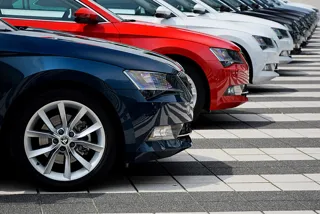By Paul Holland chief operating officer, Fleetcor
Last month saw the publication of a report by the Business, Energy and Industrial Strategy Committee, which calls for the ban on new petrol and diesel vehicle sales to be brought forward to 2032.
It also criticises the Government for what it sees as a lack of clarity on the UK’s transition to a ‘zero emissions’ future, echoing the opinions of some metro mayors earlier this year.
This lack of clarity will likely cause anxiety for organisations, whether in the private or public sector.
In fact, recent research with our own customers suggests that as many as 75% of businesses don’t even have a clear policy in place when it comes to alternative fuels.
As a result, a consensus needs to be reached on the UK’s green future, and a roadmap for transition developed, but there are a number of factors that first need to be considered.
The technology that would support a move away from traditional fuels is still in the developmental phase.
Range anxiety is widely cited as one of the key reasons drivers are reluctant to make the switch to electric vehicles (EVs), and for fleet operators this poses a problem, particularly for those that rely heavily on longer-distance travel.
There is also insufficient infrastructure to support a significant upshift in the use of EVs and alternative fuels for commercial use.
Installing enough refuelling points will take years, and hydrogen vehicles are even more restricted, with fewer than 15 refuelling stations across the UK.
Also, while the cost of alternative fuels is much cheaper, the initial outlays can be substantial. For example, new alternative fuel vehicles (AFVs) are typically more expensive than traditional fossil fuel equivalents.
With the technology so new, asset depreciation and resultant residual values are uncertain. When looking at second hand vehicles, there are few options for buying remarketed AFVs.
Opening the lines of conversation between all stakeholders will help to bring clarity on the viability of proposals.
However, there is cause for optimism. Initial findings from Fleetcor for a report due early next year show that organisations are positive when it comes to doing their bit towards the UK’s ‘zero emissions’ goal.

















Login to comment
Comments
No comments have been made yet.